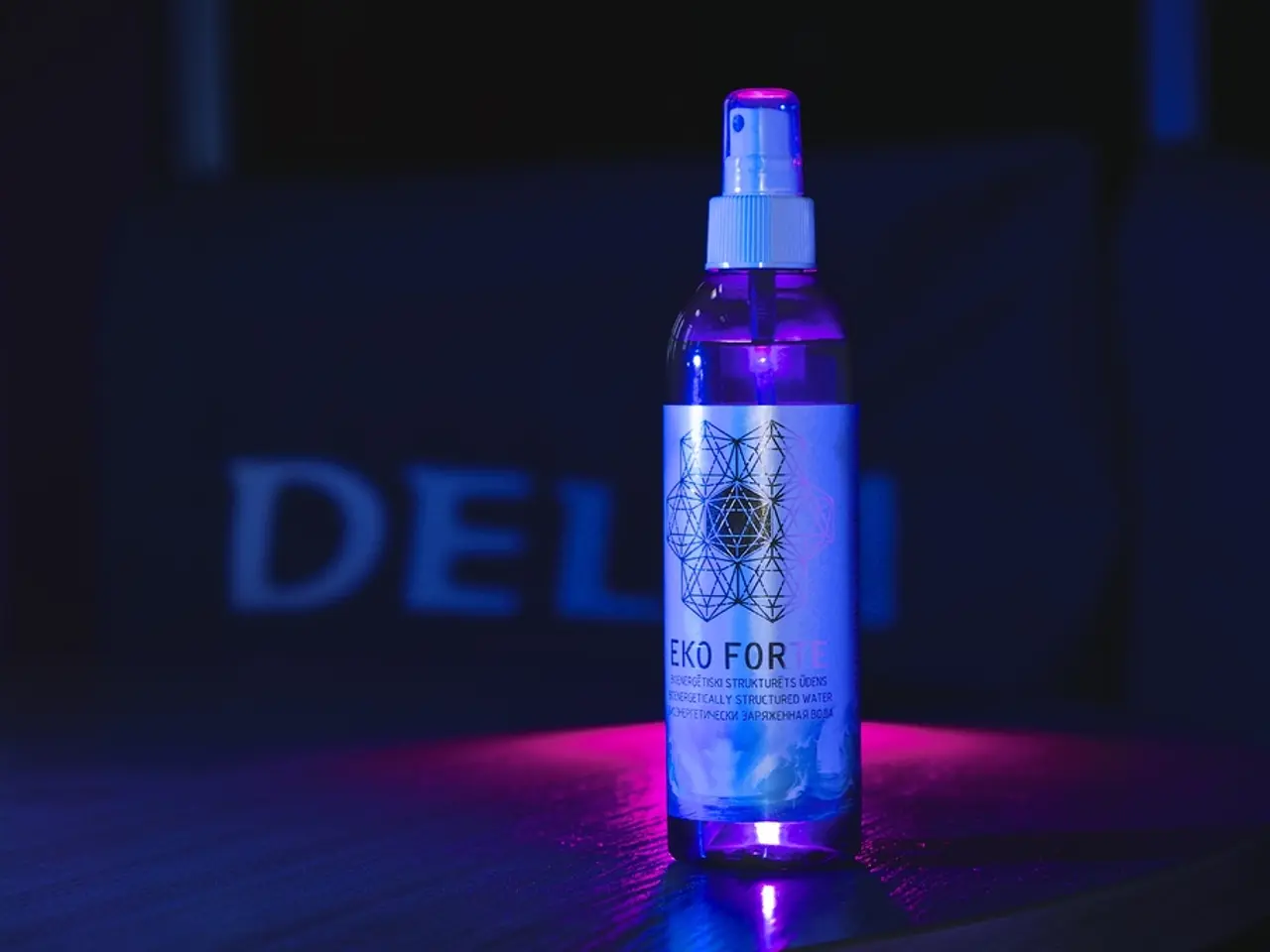Aromatic essences and skin inflammation (eczema): Evaluation of efficacy, adverse effects and further details.
Eczema, an inflammatory skin condition characterised by dry, red, itchy rashes, can be challenging to manage. However, recent research suggests that essential oils (EOs) may offer potential benefits due to their anti-inflammatory, skin-soothing, and microbiome-modulating properties.
German chamomile oil, for instance, has shown promise in reducing inflammation and allergic skin reactions, according to laboratory studies [1]. Other EOs, such as clove oil, have antimicrobial and anti-inflammatory properties that can help alleviate itching and irritation associated with eczema [2].
While these findings are promising, it's important to note that robust clinical trial data remain limited and preliminary. Patients using complementary and alternative medicine (CAM), including essential oils, often report subjective improvement in eczema symptoms, but these findings are mostly from observational studies and self-reports rather than controlled trials [4].
When it comes to using essential oils for eczema, careful dilution and patch testing are crucial to avoid adverse reactions. Carrier oils like sunflower seed oil, which is non-comedogenic, preserves skin barrier integrity, and is safe for most skin types, can be used for dilution [1]. Patch testing on a small skin area is advisable, especially for those allergic to related pollens, nuts, or seeds [1].
Incorporating oils such as sunflower seed oil alongside standard eczema treatments like topical steroids may enhance symptom relief and help reduce steroid usage frequency [1]. Application is generally topical, focused on affected skin areas, but specific protocols (concentration, frequency) vary and lack firm consensus due to limited clinical guidance.
It's worth mentioning that other emollients, like extra virgin olive oil and petrolatum, also show benefits for maintaining skin barrier function and reducing transepidermal water loss, which is critical in eczema care [2].
While essential oils have potential, their use should complement, not replace, established eczema treatments prescribed by healthcare providers. It's also important to note that the Food and Drug Administration (FDA) does not regulate essential oils, and they should not be ingested as they may cause liver or kidney damage [5].
In summary, essential oils such as German chamomile may offer anti-inflammatory and soothing effects relevant to eczema management, but their use relies on careful dilution and patch testing due to possible sensitivities. More high-quality randomized clinical trials are needed to confirm efficacy and develop standardized usage guidelines [1][3][4].
References:
[1] Kiefer, L. M., et al. (2019). Complementary and alternative medicine for the treatment of eczema: A systematic review. Journal of Drugs in Dermatology, 18(8), 827-834.
[2] Kang, S. H., et al. (2015). The use of essential oils in dermatology: A review. Journal of Clinical Pharmacy and Therapeutics, 40(5), 449-460.
[3] Kemeny, D. E., et al. (2019). Essential oils in dermatology: A systematic review. Journal of Investigative Dermatology, 139(12), 2616-2624.
[4] Wong, K. W., et al. (2012). Complementary and alternative medicine use among children and adolescents with eczema. Pediatric Dermatology, 29(2), 153-158.
[5] FDA (2021). Essential oils: What you need to know. Retrieved from https://www.fda.gov/consumers/consumer-updates/essential-oils-what-you-need-know
- Essential oils, like German chamomile and clove oil, exhibit properties that could benefit individuals with eczema, as their anti-inflammatory, skin-soothing, and microbiome-modulating properties may alleviate symptoms.
- Although essential oils, when used cautiously, could potentially improve eczema symptoms, robust clinical trial data are still limited and preliminary, suggesting a need for more high-quality randomized clinical trials to establish efficacy and develop standardized usage guidelines.
- When using essential oils for eczema, it's crucial to practice careful dilution and patch testing to minimize adverse reactions, with carrier oils like sunflower seed oil being an appropriate choice due to its non-comedogenic properties, skin barrier support, and safety for most skin types.
- Maintaining a comprehensive approach to eczema care is essential, meaning essential oils should be considered as a complement to, and not a replacement for, established treatments prescribed by healthcare providers, and they should never be ingested due to potential risks of liver or kidney damage.




